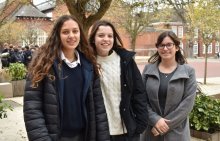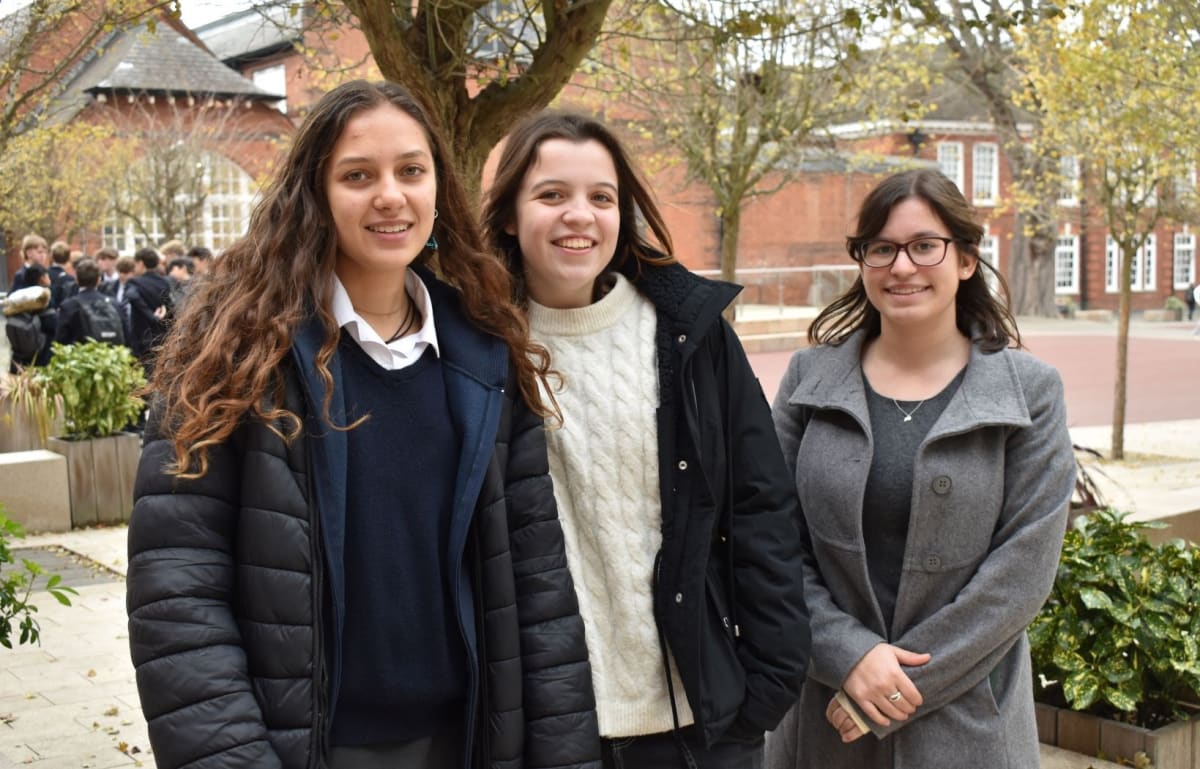.png)
Registration Deadline
Don’t forget, the deadline to apply for 11+ entry to Alleyn's School is Friday, 8th November. Click here to apply.
Last updated on 31 10 2024 at 11:34




Three Alleyn’s students have put themselves forward for GenerationTech – a global programme run by JP Morgan Chase for 14–18-year-olds to design tech solutions that address UN Sustainable Development Goals, for social good.
Focusing on Quality Education, Martina in Year 12 tells us more about how she, Sofia in Year 12 and Ruchi in Year 11 got to grips with developing an app to help revolutionise learning.

Over the past three weeks Sofia, Ruchi and I attended a JPMorgan Chase GenerationTech Programme, meeting in person on 12 November and 3 December, and online in the weeks between.
GenerationTech challenges girls aged 14 to 18 years old to come up with creative and innovative technical solutions in teams of 5-6 to tackle one of the UN’s Sustainable Development Goals (SDG’s) under the guidance and mentorship of JPMorgan Chase employees.
We were then given a crash course in Thunkable and HTML so that we would be able to program and/or design an app or website to use for our idea.
What app would help people in education?
Our team, made up of Sofia, Ruchi, me and two girls from other schools were tasked with Sustainable Development Goal 4 which is Quality Education. After much brainstorming we settled on the fact that in the UK, a lot of GCSE students might not realise the importance of education because of their reluctance to study. We concluded that this reluctance towards working stemmed from a fixed mindset of having previously struggled to work and not knowing how to improve this.
We then set about deciding what our app would do and decided on having an app based around study methods and revision techniques, focused on GCSE students. We realised that given that teenagers are inherently lazy, what app would be the most useful is if it had lots of resources all in one place.

We decided to have a quiz upon entering the app to test what kind of a learner that person is (visual, auditory or kinesthetic), and then have pages on different study methods, specific to visual, auditory or kinesthetic learners. The point of the app is that although some students know some study methods, there are not apps that have all the major ones, all in one place, with suggestions and links to each individual study method.
We thought that what most students struggle with is the mental task of having to research different study methods and trying many until they find which one works for them. Our app would completely limit that and after surveying many GCSE students they said they would have really benefitted from an app such as ours.
After splitting up the workload we each set about our separate sections of the app.
How have we benefitted by taking part?
Both Sofia and I want to go into Computer Science in the future, so this programme was invaluable to us as we not only improved our technological skills, but for me it was also the first time I created a project in a team from scratch and then had to present it at the end, so my interpersonal skills improved greatly too.
I have also already found that my new tech knowledge has been beneficial elsewhere. I have been able to use the knowledge of coding in Thunkable to design an app for the CanSat (satellite in a can) competition that a different team of us are doing with the school. The reason I decided to use Thunkable was its drag and drop coding structure using blocks (similar to Scratch) meaning it was very quick to design, so I could almost immediately send the design to the software engineer on our team for them to then create the app.

Registration Deadline
Don’t forget, the deadline to apply for 11+ entry to Alleyn's School is Friday, 8th November. Click here to apply.
Last updated on 31 10 2024 at 11:34